This website uses cookies.
By clicking the "Accept" button or continuing to browse our site, you agree to first-party and session-only cookies being stored on your device to enhance site navigation and analyze site performance and traffic. For more information on our use of cookies, please see our Privacy Policy .
- Resources for Students
- Preparing for graduate school

Program rankings
The following organizations rank graduate economics programs using various approaches:
- US News and World Report 2023 Best Economics Schools
- US News and World Report Ranking of the Best Global Universities for Economics and Business
- RePEc Ranking of Institutions
- National Academies of Sciences, Engineering, and Medicine 2011 Ranking
Academic research evaluating economics programs
- Amir, Rabah and Malgorzata Knauff. 2008. " Ranking Economics Departments Worldwide on the Basis of PhD Placement ." Review of Economics and Statistics , 90 (1), pp. 185-90.
- Grijalva, Therese C. and Clifford Nowell. 2008. " A Guide to Graduate Study in Economics: Ranking Economics Departments by Fields of Expertise ." Southern Economic Journal , 74 (4), pp. 971-96.
- Kalaitzidakis, Pantelis, Theofanis P. Mamuneas, and Thanasis Stengos. 2011. " An Updated Ranking of Academic Journals in Economics ." The Canadian Journal of Economics , 44(4):1525-1538.
- McPherson, Michael A. 2012. " Ranking US Economics Programs by Faculty and Graduate Publications: An Update Using 1994-2009 Data ." Southern Economic Journal , 79 (1): 71-89.
Graduate degrees in economics
Understanding the job market.

20 Best Doctor of Economics Graduate Schools
Reviewed by David Krug David Krug is a seasoned expert with 20 years in educational technology (EdTech). His career spans the pivotal years of technology integration in education, where he has played a key role in advancing student-centric learning solutions. David's expertise lies in marrying technological innovation with pedagogical effectiveness, making him a valuable asset in transforming educational experiences. As an advisor for enrollment startups, David provides strategic guidance, helping these companies navigate the complexities of the education sector. His insights are crucial in developing impactful and sustainable enrollment strategies.
Updated: September 20, 2024 , Reading time: 37 minutes
Share this on:

Find your perfect college degree
In this article, we will be covering...
Data Points:
- A PhD in Economics takes five to six years * to earn. Students spend two years completing their coursework, and conduct research and dissertation in the remaining years.
- The federal government (27%) is the largest employer ** of economists. About 20% of them are hired by management, scientific, and technical consulting services. Scientific research and development services employ 11% of economists. Some 17% of them also work in state and local governments.
- In 2022, there were 33,345 economists *** in the US. Of these, 34.8% are women and 65.2% are men.
The Doctor of Economics (Doctor of Economics, Ph.D.) is an advanced, terminal degree representing the highest level of academic achievement in economics. It can open doors to research, teaching, and consulting opportunities in the field of economics and beyond.
A doctorate program in Economics usually takes about 5 to 6 years to complete. The first two or three years are spent fulfilling coursework requirements. The first year of study is usually dedicated to completing the trifecta of economics basics: macroeconomics, microeconomics and econometrics.
The second doctorate year is dedicated to completing the coursework requirements of the chosen field major(s) and or the electives. The chosen majors are usually indicators of the student’s research direction or field of interest.
If the electives are separate from the majors in the curriculum – and these usually are – they serve the purpose of augmenting the student’s learning and background in preparation for further research and the dissertation requirement.
Quick audio summary:

The third year of study usually finds students either completing the electives and major courses or writing and defending a third-year paper, which helps students prepare for the dissertation proposal.
The dissertation proposal presentation usually takes place in the fourth year, while the fifth and sixth years (and sometimes, the seventh year) are spent executing the approved research plan and writing the final paper to the dissertation committee.
When the dissertation has been accepted, the title of Doctorate in Economics is conferred.
Exams are also important milestones within the program. Usually, one or two preliminary exams are administered between the second and third years.
These preliminary exams test a student’s comprehension of macroeconomics and the courses taken as part of the field majors and elective requirements. The oral exam, usually administered between the third and fourth years, represents the dissertation proposal defense.
METHODOLOGY
- For each school, the research areas or fields with the greatest faculty involvement are mentioned as a guide for students to help them decide on their research direction and prospective thesis adviser. Certain schools are known to specialize in some areas, or some areas will have a high faculty research involvement and, thus, denotes a strong research area for that school’s economics department.
- Published works in peer-reviewed journals,
- The number of research areas available in a school’s economics department, also the number of inter-disciplinary research areas available, signifies that the department embraces the integration and application of economics with other relevant disciplines, thus providing a more holistic, interconnected, timely and modern understanding of economics as it relates with relevant disciplines like finance, politics, policy, sociology, sustainability, health, business, information systems, entertainment (games, auctions) and even neuroscience (as it relates to the physiology of decision-making),
- Side note: this is why Caltech tops this list, while it is not a prominent name in traditional and semi-contemporary economics research, it does groundbreaking work in integrating economics with the abovementioned fields, especially with neuroscience, which should open the doors for more collaborative studies in these particular fields
- The number of research centers or institutes a school’s economics department has or with which it is affiliated,
- The number of fellows or researchers or associates in professional societies and national agencies like the National Academy of Sciences, or the National Bureau of Economics Research, the American Economic Association and other societies; the number of Nobel laureates for Economics are also factored in the ranking,
- R&D expenditures , whether privately or federally financed, also denotes research activity and thus, research contribution,
- The school’s prominence in various academic ranking reports is also a factor (averaged) in the rankings.
- Since many schools are tied based on the methodology itemized above, many schools are clustered together and share the same ranking (numbers 2, 3, and 5). For those that are clustered in one ranking, they are listed alphabetically.

THE 20 BEST DOCTOR OF ECONOMICS GRADUATE SCHOOLS
California institute of technology (caltech) division of the humanities and social sciences.

Pasadena CA
Ph.D. in Social Sciences (focus on Economics)
Caltech’s Division of Humanities and Social Sciences (HSS) is home to the field of experimental economics, thanks to its alumnus Vernon Smith of class 1949, who pioneered the use of human test subjects to investigate the interaction between markets and economic and financial institutions. In 2002, he was awarded the Nobel Prize in Economics for this groundbreaking research method today.
- Caltech offers a Ph.D. program in Social Sciences that takes a modern and collaborative approach to economics by enveloping it in an all-encompassing program covering economics, political economy, history, political science, psychology, law, policy and even anthropology.
- The program also employs an innovative approach to economic research through laboratory experiments and neuro-imaging technology.
- Applicants and incoming Ph.D. students should demonstrate a solid background in calculus (four semesters), linear algebra, mathematical statistics and real analysis.
- Applied Microeconomics
- Business, Economics and Management
- Economics and Computer Science
- Economic History
- Economic Theory
- Political Economy
- Social and Decision Neuroscience
- Statistical Methodology
- Faculty involvement in these research areas is highest with the first two fields mentioned.
Standout Features of the Program:
The faculty in charge of the Ph.D. SS program is comprised of nearly 40 professors and researchers hailing from various disciplines – from economics, finance, social science, computational sciences (math and statistics), political science to neuroscience. The majority of the faculty are specialists in economics, with about a fifth of the faculty being specialists in neuroscience.
The basic operator of economics is decision-making, and Caltech’s HSS Division recognizes that. In line with its tradition of innovation and breaking ground, HSS offers an alternative to the Social Science Ph.D. program, the Ph.D. program in Social and Decision Neuroscience.
Students under this program will learn how to devise neurocomputational models and integrate mathematics, statistics, neuroscience, and information science to get to the bottom of human decision-making abilities – the triggers, the stimulants, and the nuances.
Harvard University Department of Economics

Cambridge, MA
Ph.D. in Economics
Since its establishment in 1897, Harvard’s Department of Economics has been consistently regarded as one of, if not the most selective Economics Ph.D. program in the U.S. today.
It offers courses and programs at every level, taught by nearly 60 faculty members who are renowned industry economists and or researchers.
- Applicants must possess an above-undergraduate level of understanding of economics. They are also required to have research experience, whether at the helm or as a research assistant.
- Mathematics courses are also required, with the minimum being linear algebra and calculus, but the more mathematics courses are taken at the undergraduate and master’s levels, the better. A background in probability, statistics and computer programming may also be advantageous.
- Additionally, a major requirement for admission is a 15-page writing sample.
- Second-year students are expected to elect two concentrations or emphases and enroll in courses related to these.
- Third-year students are required to apply for teaching fellowships.
The department faculty does research in a wide array of fields in economics, such as labor economics, public economics, macroeconomics, and behavioral economics, among others. These are also the four research areas with the highest activity based on faculty involvement.
The department is involved in four research initiatives that study how human behavior , big data , public policy , and microeconomics impact the discipline of economics as a whole and vice-versa. The department’s esteemed academe leads these initiatives, with one of the four centers, the German Administrative Data Project , representing an investigative collaboration between Harvard Economics and the German Federal Employment Agency.
Princeton University Economics Department
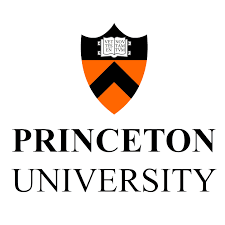
Princeton, NJ
Princeton Economics has always been at the forefront of economic research and innovation. Two of its faculty members are Nobel laureates, and the department consistently publishes research in various esteemed publications such as the Journal of Economic Dynamics and Control and the American Economic Review , to name a few.
- The graduate program in Economics is one of the most highly selective, as it only accepts a maximum of 25 students per year.
- Students are expected to receive financial support throughout their freshman year through fellowships. The fellowship funding may also be extended during the summer term to help fund their research activities.
- The program is a straightforward doctorate program with no option for a master’s degree.
- Students can choose from any of the 28 research areas , which, aside from the traditional research areas, also include contemporary subfields like health economics, environmental and energy economics, political economy of China, structural microeconomics and, urban and spatial economics.
Princeton Economics consists of 80 faculty members actively researching various economic fields, as mentioned above. Many of the department’s research concentrates on financial economics, political economy, economic theory, and labor economics.
Princeton Economics is affiliated with 16 research centers that touch on the various facets of economics, such as macroeconomics, international economics , and public policy. Under public policy alone, there are three research centers: Princeton Program in Public Finance , Julis-Rabinowitz Center for Public Policy & Finance , and the Griswold Center for Economic Policy Studies .
University of California Berkeley Department of Economics

Berkeley, CA
Berkeley Economics is a pioneering force in diversity and equality. Soon after its establishment in 1903, the department was home to Berkeley’s first female full-time professor, Dr. Jessica Peixotto. Female faculty members would then flock to Berkeley Economics in waves – first, before WWI, and second in the early ’70s.
- The Ph.D. program in Economics usually takes six years to complete, with the first three devoted to coursework and electing preferred research fields in preparation for doctoral candidacy, while the last three years are devoted to completing the dissertation.
- First-year students are required to take courses in the following areas: macroeconomics, microeconomics, mathematics for economics, econometrics, theory, history and research in economics.
- Second-year students are expected to undergo examinations for their chosen fields. They can choose two from the 23 areas offered by the department, which also include alternative fields like Urban and Regional Economics, Health Economics, City and Regional Planning, Education and Economics, and Resource Economics.
- Third-year students are expected to complete the required semester-long Departmental Seminars (any available seminar for the current term). Only then will they be allowed to undergo the doctoral qualifying exams, mostly composed of the dissertation proposal.
Standout Features of the Program:
Students can engage in any of the 18 research fields available within the department, including traditional fields like theory and econometrics, alongside contemporary fields like monetary theory and behavioral economics.
Research fields with the highest faculty involvement, ergo, research activity, are the fields of finance, international economics, labor economics, macroeconomics, and public economics.
Berkeley Economics is affiliated with 14 research centers , which include the Opportunity Lab for policy research, the Econometrics Laboratory (EML) , and the Center for Effective Global Action , to name a few, which provides researchers an avenue for the practical application of economic research.
University of Michigan Department of Economics
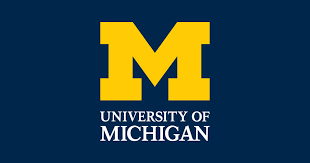
Ann Arbor, MI
Michigan’s Department of Economics comprises nearly 70 professor-researchers involved in the various fields of economics. The department does research in 14 areas , including traditional areas like labor economics and industrial organization (which are the fields with the greatest faculty involvement) and contemporary areas like health economics and environmental and resource economics.
- The Ph.D. program in Economics, while taught and offered by the Department of Economics, is administered by UM’s Rackham Graduate School. All applications will be screened centrally, which, for AY 2020, will not include or require GRE results.
- The program also offers the option of double doctorates through its joint program offerings . Econ Ph.D. students can also choose to pursue a second Ph.D. in Business, Public Policy, or a field of their choosing through the Individually Interdependent Degree Program (IIDP) , also known as the Student Initiated Degree Program (SIDP).
- While first-year students are required to complete the traditional introductory courses (macro, micro, econometrics and math), second and third-year students are expected to complete courses in the various fields of economics, from advanced methods to monetary economics, labor economics, industrial organization, international economics, to public finance, among others.
The Michigan Institute for Teaching and Research Education (MITRE) is a research hub out of UM Economics that houses faculty and student investigative work in various economic fields. It is also a teaching initiative that provides aspiring Econ instructors with valuable training and project collaborations. It also provides funding for research, such as the William Haber Fellowship .
UM, Economics has an impressive track record in job placement year after year. For AY 2019-2020, many of its graduates are now tenure-track faculty members in renowned universities such as Harvard, Stockholm University, and Tsinghua University, while some secured roles in public financial institutions like the Treasury Department, the Congressional Budget Office, the World Bank, and the International Monetary Fund, to name a few.
University of Pennsylvania School of Arts and Sciences

Philadelphia, PA
Penn Economics is hailed as among the country and the world’s top schools for economics. Its prominence is mostly attributed to the three major economic research centers it houses or is affiliated with: the Penn Institute for Economic Research (PIER) , the Philadelphia Federal Statistical Research Data Center (PFSRDC) , and the Penn Initiative for the Study of Markets (PISM) .
Additionally, it is also the home of one of the world’s esteemed publications in economics, the International Economic Review (IER).
- The Doctorate in Economics program is a straightforward graduate program with no option for a master’s degree. Also, only full-time enrollments are accepted into the program.
- First-year students must complete courses and the corresponding preliminary exams in econometrics, macroeconomics and microeconomics.
- Second-year students are required to complete the Empirical Economics requirement , a set of courses that circle the application of economic theories and instruments on various actual economic institutions.
- Third-year students are expected to complete workshop courses, while fourth-year students must complete their dissertation proposals before the spring term concludes.
While the Penn Economics faculty does research mainly in four areas of economics – econometrics, macroeconomics, empirical microeconomics, and microeconomic theory, what makes the department and, by extension, the program, stand out is the faculty’s extensive involvement in published work, whether through books , papers , and publications in peer-reviewed journals .
The International Economic Review (IER) is a product of Penn Economics and Osaka University published every quarter since 1960. It is a highly regarded, world-leading peer-reviewed journal in economics.
Massachusetts Institute of Technology Department of Economics

Ph.D. in Economics
MIT Economics has been at the forefront of civil service and research since the late 1800s, with the involvement of then Brigadier General and MIT President Francis Amasa Walker in the U.S. Census.
Amasa also established the American Economic Association and became its first president. Right around WWII, the department would then offer master’s and doctorate degrees in economics.
- The Ph.D. in Economics program exposes students to rigorous research work as early as the first year of study.
- First and second-year students are required to complete the following core courses: Micro Theory, Macro Theory, Econometrics, and Statistical Method in Economics & Applied Econometrics, as well as a course on Advanced Research and Communication.
- Second-year students submit a research paper to fulfill the requirements for the Econometrics course.
- Students are also required to elect four concentrations or special fields – two majors and two minors – from which they need to complete the prescribed coursework.
Students can select from any of the ten concentrations for their major and minor declarations. The fields also denote the research areas under which the department faculty are involved, with the areas of theory, macroeconomics, and international economics with the highest research activity.
MIT Economics is home to five research centers . Among these include the MIT-Central Banks collaboration World Economy Laboratory and the Center for Energy and Environmental Policy Research , which is the brainchild of three MIT schools and centers – Economics, the Energy Initiative, and the Sloan School.
Yale University Department of Economics
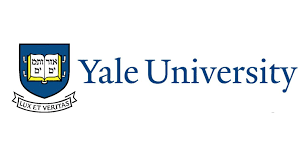
New Haven CT
Yale University’s Department of Economics is composed of more than 50 faculty members who are experts in 14 areas of economics. Among the department’s strongest and most active areas in terms of research are Industrial Organization, Microeconomics, Macroeconomics, and Public Economics.
- The Ph.D. in Economics program must be completed within six years of registration. Students must reside in New Haven for a minimum of three years during enrollment.
- Students must complete a minimum of six graduate courses in economics to be admitted into the second year of graduate studies.
- All Yale graduate students are required to meet the “Two Honors” requirement. For Econ doctorate students, this means completing two economics graduate courses with a minimum grade of H-, which should be completed by the end of the second year.
- The student’s third year should also complete the qualifying exam for doctoral candidacy. Students are given two attempts to take their first attempt as early as their second year.
Students can choose to do research in any of the department’s 13 research areas , including foundational fields in economics such as macroeconomics, microeconomics, econometrics, economic history, and financial economics.
With a faculty comprised of 50 professors (both tenured and non-tenured) and an average Ph.D. enrollee count of 125, Yale Economics provides an optimum faculty/student ratio of one professor to two or three students. This optimum ratio is considered one of the best among all the economic schools in the U.S.
Brown University Department of Economics

Providence RI
Brown University’s Department of Economics is home to the Orlando Bravo Center for Economic Research , which is the university’s research hub for all things economics.
Brown Economics is also home to the editors of many of the discipline’s respected peer-reviewed journals like the American Economic Journal and the Journal of Economic Growth .
- Brown University’s doctorate in Economics boasts strong research and training in economic analysis and theory.
- First-year students must complete the following courses: Econometrics, Macroeconomics, Microeconomics, Mathematics, and Applied Economics Analysis.
- Students are also required to attend seminars or colloquia , and they can choose from topics like macroeconomics, applied microeconomics, econometrics and economic theory.
- Students can choose to research any of the five research areas the faculty are involved in. Finance, macroeconomics, applied microeconomics, econometrics, and experimental and economic theory.
The Department of Economics is helmed by 30 esteemed faculty members , societal fellows, research grant recipients, and editors of academic literature (book and journals). Students will have no shortage in the choice of a thesis adviser. As for funding, students can consider applying for in-house funding through the Bravo Center Research Grant .
Students looking to do integrative research in population, policy development, and economics can engage with the university’s Population Studies and Training Center . Aside from demographics and social mobility, the center also tackles community-level issues like reproductive health and other national and global issues like health economics, urban economics, environmental economics, and diversity and inequality.
New York University Department of Economics

New York, NY
NYU Economics is a research powerhouse that not only boasts of Nobel laureates in Economics and National Academy of Science fellows.
It is also home to various research institutes such as the Development Research Institute (DRI) and the Center for R e search in Applied and Theoretical Economics (CRATE) , which aim to deepen and expand the tenets of economics, and the Institute for the Study of Decision Making (ISDM, or the Center for Neuroeconomics), which is an interdisciplinary research institute combining economics, neuroscience, psychology, medicine, and information systems.
- NYU Economics only accepts full-time enrollment for its Ph.D. program. Enrolled students must complete a minimum of 72 credits, with at least 64 credits earned while in campus residence.
- Minimum coursework requirements for first-year students include all two levels of Econometrics, Macroeconomics and Microeconomics, a course on Mathematics for Economists, and two advanced courses or seminars.
- Second-year students must elect two concentrations for the field requirement and complete the appropriate coursework under these. There are two qualifying exams with topics on microeconomics and macroeconomics before the third year of study.
- Third-year students must submit research papers in preparation for the dissertation proposal oral exam or the doctoral candidacy exam.
Students can choose to research 13 areas of economics , which includes strong research activities in macroeconomics and microeconomics. Other budding research areas include asset pricing, corporate finance, monetary economics, and experimental and behavioral economics.
NYU Economics is home to the C.V. Starr Center for Applied Economics , the department’s research hub tackling the most concerning and highly impactive socioeconomic issues today, both on national and global levels. The Department is also involved in collaborative research through NYU’s Center for Experimental Social Science (CESS), which, aside from Economics, enjoins the bright minds from the departments of Psychology, Neuroscience, Political Science, and Social Science.
Northwestern University Department of Economics
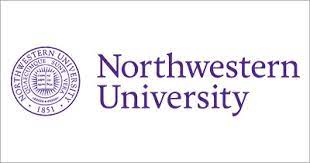
Evanston, IL
The Northwestern Economics Department comprises 60 faculty members close to other Northwestern schools like the Kellogg School of Management (KSM). These professors are involved in eight research areas, but the department is acclaimed for its strong macroeconomics research, which laid the ground for the Dynamic Stochastic General Equilibrium (DSGE) models for fiscal policy and labor analysis.
- Northwestern offers a straightforward Ph.D. degree in Economics. However, a terminal master’s degree is not offered as a program but can be conferred to Ph.D. students who have completed their first year of studies.
- The program is highly selective, with only an average of 25 students admitted yearly. The result is an average of 120 Ph.D. students in residence every year.
- First-year students must complete the following core courses: all three levels of Microeconomics, Macroeconomics, Econometrics, and Mathematical Methods for Economic Theory.
- Students who need additional training in advanced mathematics for economics may request permission from the department to take additional math courses such as Real Analysis.
Students can choose to research any of the nine areas of economics available in the department. Many of these fields involve collaborative research with the Kellogg School of Management. These fields include Macroeconomics, Health Economics, Development Economics, Financial Economics, and Labor and Public Economics.
The Economics Department and KSM have also collaborated to offer the joint Ph.D. in Financial Economics program. Students under this program are expected to integrate their robust training in economics with finance courses like Asset Pricing and Corporate Finance.
Students can take advantage of the eight economic research centers housed by the Economics Department. It has research institutes in traditional economic areas like econometrics , theory , history , and macroeconomics and contemporary economic areas like poverty research and data science for economics .
Stanford University Department of Economics

Stanford, CA
Stanford Economics has always been regarded as a research powerhouse since its establishment in the ’60s, particularly in Economic Theory.
But as years went by, the department’s research footprint has expanded to now include more than 20 areas, with the fields of Applied Microeconomics, Financial Economics, Labor Economics, and Macroeconomics as some of its strongest and most active research areas based on faculty involvement.
- First-year Ph.D. students must complete the core courses comprising microeconomics, macroeconomics, and econometrics.
- They must also elect two areas as their majors. Each area will have its own set of requirements . Students can choose from any of the 14 research areas available, including Behavioral and Experimental Economics, Environmental, Resource and Energy Economics, Market Design, and International Trade and Finance, among others.
- Students must also take four courses from the two other areas not selected as major fields. One of the courses must stem from the field of Economic History.
- A one-quarter-long teaching experience is required. Students are also required to render a 135-unit residency. They are also required to attend workshops or field seminars in the field(s).
Students can choose to research any of the 21 fields of interest available in the department. The list includes Applied Microeconomics, Decision Theory, Economics of Technology, and Game Theory.
The Stanford Institute for Theoretical Economics (SITE) is a yearly conference held every summer that brings together all of Stanford Economics – faculty, students, researchers – and other experts and collaborators in the field. The conference features workshops and seminars that encourage discussions, project collaborations within economics, related disciplines, academic and professional networking, and further research. SITE enjoys generous funding from the NSF and other Stanford departments.
Columbia University Department of Economics
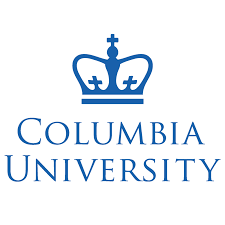
Columbia Economics is home to many Nobel laureates, including Milton Friedman, best known for his monetary theory and stabilization policy studies, and William Vickrey. He pioneered the Game Theory in understanding how sealed-bid auctions work ( Vickrey auctions) .
- The Ph.D. program in Economics requires the completion of courses in econometrics, microeconomics, macroeconomics, mathematical methods, and perspectives in economic theory during the first year of study.
- Research begins during the second year, with students presenting their research papers in a colloquium. They must also elect two concentrations and complete the appropriate coursework.
- The dissertation proposal should be presented during the fourth year of study. To help them prepare, students must submit another research paper the year prior (year 3).
- Students can choose to do research in any of the traditional fields of economics, such as macroeconomics and microeconomics, or choose a more contemporary field, such as urban economics, public finance, labor economics, or industrial organization.
While Columbia Economics offers several areas of interest under which students can do research, three of the program’s strongest research areas are in the field of empirical economics, applied economics, and theoretical economics.
The Department of Economics partakes in the university’s Bridge to Ph.D. program , which accepts applicants annually. This is a good stepping stone – both academically and financially – for post-baccalaureates who are aspiring to apply to grad school. Successful applicants will land roles as full-time RAs with an annual salary of $51K (based on AY 2020-2021).
They are expected to enroll in a few economics electives like mathematics, real analysis, statistics, or introductory economics (macro, micro, econometrics) while rendering RA work in preparation for their application and subsequent admission to graduate school.
University of California Los Angeles Department of Economics
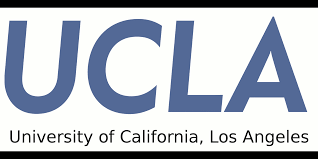
Los Angeles, CA
UCLA Economics has produced acclaimed graduates trained by equally acclaimed faculty and researchers. It is also home to important macroeconomics , economic history , industrial organization , and population research.
- Before starting the doctoral program, students must participate in the two-week Math Camp, which equips them with mathematical foundations for economics (Econ 200) and navigating the statistical software MatLab.
- Otherwise, incoming Ph.D. students confident in their advanced math skills may opt to tackle the online modules via the Essential Microeconomics website in preparation for doctoral work. To help students complete the modules, students can go through the Calculus of Economics modules as needed.
- Second-year students must elect three of the ten field concentrations offered by the department. They can also take related non-Econ courses (not offered by the Department) such as finance, marketing, political science, public policy, mathematics, statistics and electrical engineering.
Students looking at teaching assistantships as a source for funding can browse the UCLA Economics Teaching Resources page for tutorials on using LMS tools, a class archive for course syllabi, or resources on teaching techniques.
UCLA Economics is home to esteemed alumni, researchers, and Nobel laureates in Economics, which includes Dr. William Sharpe, an alumnus of the department’s graduate school who pioneered the Capital Asset Pricing Model and several investment performance analytical tools, such as the Sharpe Ratio, the returns-based style analysis, the binomial method, and the gradient method for asset appropriation.
University of California San Diego Department of Economics

La Jolla, CA
UCSD Economics prides itself with its strong training and research in the fields of microeconomic theory, econometrics, applied microeconomics, and macroeconomics, as well as its formidable and productive collaborations with UCSD’s Public Policy , Management , and Political Science schools.
- The maintenance of full-time status, equating to 12 units, to be continually eligible for funding,
- Two-year in-campus residency,
- The maintenance of a 3.0 GPA.
- Students must complete the course on Computation (Econ 280) and the empirical project , which is required by the Econometrics course.
- They also need to take seven electives, which must be completed before the end of Year 3. There are close to 30 elective courses from which students may choose.
- Students must choose two concentrations and complete the prescribed number of required courses. There are 12 field concentrations from which students can choose, including the traditional fields and contemporary ones like Behavioral/Experimental economics and Environmental & Natural Resource Economics.
Students can choose to research any of the 14 research areas being tackled by the department. Some of the highly active research fields are Development Economics, Econometrics, Finance, Labor Economics, Macroeconomics, Microeconomic Theory, Political Economics, and Public Economics.
The department houses the Center for Environmental Economics and the San Diego Education Research Alliance (SanDERA) . Both research centers integrate economics with other relevant disciplines to help influence policy reforms, opportunities, and initiatives.
The University of Chicago The Kenneth C. Griffin Department of Economics
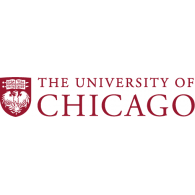
Chicago, Illinois
Chicago’s Department of Economics, which was renamed The Kenneth C. Griffin Department of Economics in 2017 after the generous donation of the eponymous foundation, is the birthplace of many tenets and facets of economics, such as behavioral economics, political economy, and financial economy. It is also the birthplace of The Journal of Political Economy.
- Chicago Economics usually offers admission to about 55 applicants, with only about half enrolling into the program, thus, ensuring an optimal professor-to-student ratio.
- The department only offers a Ph.D. graduate program in Economics. A terminal MA degree is not offered.
- Students can choose to do research in Applied Microeconomics, Econometrics, Macroeconomics and Economic Theory. Research in Applied Microeconomics has the highest faculty involvement.
- Students can opt to pursue a joint Ph.D. degree in Financial Economics , as offered by the Booth School of Business, along with the Economics Department. Applicants can lodge their applications through the Economics Department or the Booth School.
Chicago Economics is affiliated with several research centers , including the Center for the Economics of Human Development (CEHD) , the Energy Policy Institute , and the Becker Friedman Institute for Research Economics . The Becker Friedman Institute is a joint effort of the Economics Department, Chicago Law School, Booth School of Business, and Harris School of Public Policy.
The Economics Department is home to the Griffin Applied Economics Incubator , a research and policy hub where economic studies and statistics drive change through policy formulation and or reform. Every year, the incubator tackles a global or national socioeconomic issue that allows academics to collaborate across disciplines.
University of Minnesota Department of Economics
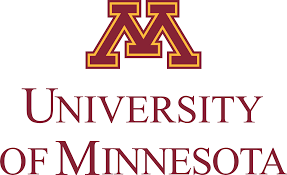
Minneapolis, MN
UMN’s Department of Economics boasts having Nobel laureates among its Ph.D. alumni. From the class of ’64, Daniel McFadden, who authored the paper on the Development of the Theory and Methods for Analyzing Discrete Choice , was awarded the Nobel in 2000. From the class of ’78, Lars Peter Hansen, who pioneered the Generalized Method of Moments, was awarded the Nobel in 2013.
- Incoming Ph.D. students must be equipped with a strong background in computational courses, such as linear algebra, multivariate calculus, and econometrics.
- Students are also required to complete all four levels of Microeconomics and Macroeconomics courses.
- Eight credits of electives are required. Students can choose from this catalog , which includes courses in computer science, finance, mathematics, psychology and statistics.
- The dissertation is worth 24 credit units. Students can choose to research the 13 areas of interest available within the department. These include traditional macroeconomic and microeconomic theory fields and contemporary applied fields like game theory, monetary economics, and mathematical economics.
UMN Economics is home to the Heller-Hurwicz Economics Institute , which specializes in economic theory research, the Minnesota Economics Big Data Institute (MEBDI) , which specializes in the use of data science in applied economic research; and the Economics Research Library (ERL) , which is a repository for all published sources on economics, both in-house and from external sources like federal agencies.
Two of UMN Economics’ younger graduates have also brought pride to the department and the university. Connan Snider and Thomas Youle of classes 2010 and 2014, respectively, uncovered initial and damning evidence of collusion among bankers as early as 2008, resulting in the LIBOR (London Interbank Offered Rate) Rigging Scandal , considered by many economists as the biggest global financial scandal in the world.
Cornell University Department of Economics

Ithaca, New York
Cornell Economics is a collaboration between the department itself and other Cornell schools such as the Johnson School of Management , Cornell Law , the Department of Policy Analysis and Management , Cornell Hotel School , the Dyson School of Applied Economics & Management , and the Division of Nutritional Sciences .
The result is an Economics Department that boasts of strong research in the tenets of economics and the contemporary and integrative applications of economics in other fields, such as finance, law, policy, business, hospitality, and health economics.
- Incoming Ph.D. students must demonstrate a solid background in calculus, linear algebra, real analysis and advanced mathematics. A minimum of four semesters is the bare minimum. To stand a greater chance for funding, students are strongly advised to cultivate a more extensive mathematics background with exposure to differential equations, probability, statistics, topology, stochastic equations, and complex analysis.
- In the case of inadequate mathematics courses exposure, students can enroll in the three-week mathematics review course before the fall term.
- As for undergraduate economics background, the bare minimum is microeconomics and intermediate-level economic theory. A major in economics for post-baccalaureates is not required in the doctorate program.
Cornell Economics faculty comprises nearly 60 professors and researchers involved in 40 different areas of interest in economics. The extensive list of fields of study includes traditional areas of economics, as well as highly specific and contemporary fields such as Insurance, Contract Theory, Gender Economics, Family Economics, Inequality, Race and Discrimination Economics, Decision Theory, Big Data, Compensation, Law Economics, Economics of Crime, Networks, and Information Economics.
Cornell Economics is home to the renowned S.C. Tsiang Macroeconomics Workshop , named after the department’s eponymous alumnus and eventual professor emeritus, known for his contributions to macroeconomic theory and monetary economics.
University of California Davis Department of Economics

Nearly 20 of UC Davis Economics faculty (which is about half of the faculty) hold research associateship and research fellowship roles at the National Bureau of Economic Research (NBER) , which is the national authority on economic research and policy advisement.
- First-year Ph.D. students must complete the courses on econometrics, macroeconomics and microeconomics.
- Advanced economic theory
- Public economics
- Advanced macroeconomics
- Economic development
- Economic history
- Econometrics
- International economics
- Industrial organization
- Labor economics
- The UC Davis Economics faculty comprises nearly 40 professors and researchers who specialize in 16 areas of economics, with the fields of International Economics and Macroeconomics as some of the faculty’s strongest research fields.
- The department is affiliated with various research centers that deal with economic history , international economics , socioeconomic issues , and energy economics .
Students who choose to research in Regional and Urban Economics may engage with the Center for Poverty Research for insight, sources, and research funding.
The Department of Health & Human Services funds this federal institute that focuses on the issues of the marginalized sector and helps create policies and opportunities towards upward social mobility. Students may also reach out to Professor Giovanni Peri for consultation and advisement in this area.
The department hosts seminars for nine areas of interest in economics regularly. These are seminars on macroeconomics, international economics, behavioral economics and many other fields.
University of Wisconsin Madison Department of Economics

Madison, WI
The following major requirements define UW’s doctorate program in economics: completing the preliminary exams on Microeconomic and Macroeconomic Theory, a research paper on the chosen major field by Year 3, three signatures on the dissertation proposal signifying committee acceptance, and the acceptance of the dissertation defense.
- First-year students must take the following courses during the fall term: microeconomics, macroeconomics, economic statistics and econometrics, and mathematical economics.
- The second level of all previous courses must be taken (except for mathematical economics). Students can take an elective course to complete the four-course term during this term. This could be a course on statistics, economics, or mathematics.
- Second-year students are required to elect major and minor fields. Aside from mathematics and statistics, students may also elect a minor field from another department for the minor fields.
- Aside from the two-course requirement for the major fields, students must also attend the appropriate workshop for that field. These workshops are funded by the Juli Plant Grainger Institute (JPGI) for Economic Research.
The Juli Plant Grainger Institute (JPGI) for Economic Research is the department’s hub for economic researches, both student and faculty work. It also provides funding and hosts conferences and seminars or workshops specific to the seven areas of study in economics currently being tackled by the department.
The department faculty comprises nearly 60 professors and researchers, most of whom are involved in macroeconomics, labor economics, and public economics and finance.

FREQUENTLY ASKED QUESTIONS
What advantages does a doctor of economics have over the others.
In 2023, the BLS reported that the median pay of an economist with a master’s degree is more than $115K a year, with a projected job growth of 6% over the next ten years, which is considered above average by agency standards.
What more if the economist has a doctoral degree? Expect that median pay to increase, at the very least, by half or at best, maybe even by a hundred percent.
Professionals with a doctorate in economics can command that high salary because they demand across industries. From the academe to business enterprises, to research organizations (non-profit or government-funded), legislation and policy, to politics , data science , and information systems , financial markets and instruments, or consultative services, economists, and especially those with a Ph.D., can always carve a significant career in any industry and be probably set for life (holds for tenured professors).
Who can apply to the program?
All baccalaureate graduates (those with a bachelor’s degree) in any degree can apply to doctorate in economics (or similarly named) programs. While all graduates can freely lodge their applications, not everyone passes, as most econ doctoral programs are highly selective, with only an average acceptance rate of 25 students per year.
Those with a formidable background in undergraduate or graduate (master’s degree) in economics, mathematics, statistics, finance or any degree with a significant foundation in advanced mathematics stand a greater chance of being accepted.
If the applicant comes from a different degree background, say, the health sciences or political science, the applicant may still strongly qualify for admission provided that a strong mathematics background is demonstrated. Courses like linear algebra, real analysis, multivariate and differential calculus, and statistics are minimum pre-Ph.D. requirements.
Are GRE scores required? What are the other admission requirements?
Not for AY 2022, but best to check with the school’s admission office to be certain. The other admission requirements are the completed application form, a resume, letters of recommendation preferably from previous and current employers, a personal essay, all transcript of records, and proof of payment of the application fee.
Again, check with the school’s economics department or admissions office for other requirements that may be specific to the program.
How will earning a Doctorate in the field of Economics advance my career?
A Doctorate in Economics can open up a wide range of career opportunities in the fields of academia, business, government, research, and consulting.
With a Ph.D. in Economics, you could apply for positions such as economic analyst, professor, policy specialist, economic consultant, market researcher , and finance manager . You may also be able to qualify for more senior-level positions that would require your advanced and specialized knowledge.
As a doctoral-level economist, your skills would be highly sought-after, making you a valuable asset to any organization. With a Doctorate in Economics, you would have the opportunity to make an even greater and more lasting impact in the world of economics.
KEY TAKEAWAYS
Obtaining a Doctor of Economics degree can open up a wide range of career opportunities in the field of economics, from academia to government and private sector positions.
To ensure a successful and fulfilling academic journey, it is essential to choose the best graduate school for your doctoral studies. There are several key factors to consider when selecting a Doctor of Economics graduate school, including reputation, faculty, curriculum, and research opportunities.
- First, the reputation of the graduate school is crucial.
- Second, the faculty at the graduate school should be top-notch.
- The curriculum of the graduate school’s economics program is another critical factor.
- Research opportunities are also essential to consider, as they can greatly enhance your academic experience.
- Additionally, consider the opportunities for collaboration and mentorship with faculty and other students.
- It is crucial to consider the overall fit and environment of the graduate school.

In conclusion, obtaining a Doctor of Economics degree from a top graduate school requires careful consideration of factors such as reputation, faculty, curriculum, research opportunities, and overall fit. By thoroughly researching and comparing different institutions, you can find the best graduate school to support your academic and career aspirations in the field of economics.
Additional Resources:
- Economics vs Financial Analysis: Career ROI
- Best Online Doctor of Finance Degree Programs
- Best Grad Schools with Online Doctorate in Entrepreneurship
Related Posts

We’re certain of one thing—your search for more information on picking the best graduate degree or school landed you here. Let our experts help guide your through the decision making process with thoughtful content written by experts.
Browse Econ Literature
- Working papers
- Software components
- Book chapters
- JEL classification
More features
- Subscribe to new research
RePEc Biblio
Author registration.
- Economics Virtual Seminar Calendar NEW!

- Explanations
- Institutions
- Institutions 10/10
The data presented here are experimental. They are based on a sample of the research output in Economics and Finance. Only material catalogued in RePEc is considered. For any citation based criterion, only works that could be parsed by the CitEc project are considered. For any ranking of people, only those registered with the RePEc Author Service can be taken into account. And for rankings of institutions, only those listed in EDIRC and claimed as affiliation by the respective, registered authors can be measured. Thus, this list is by no means based on a complete sample. You can help making this more comprehensive by encouraging more publications to be listed ( instructions ) and more authors to register ( form ). For more details on the various rankings that are available as well for documentation, follow this link .
More services and features
Follow serials, authors, keywords & more
Public profiles for Economics researchers
Various research rankings in Economics
RePEc Genealogy
Who was a student of whom, using RePEc
Curated articles & papers on economics topics
Upload your paper to be listed on RePEc and IDEAS
New papers by email
Subscribe to new additions to RePEc
EconAcademics
Blog aggregator for economics research
Cases of plagiarism in Economics
About RePEc
Initiative for open bibliographies in Economics
News about RePEc
Questions about IDEAS and RePEc
RePEc volunteers
Participating archives
Publishers indexing in RePEc
Privacy statement
Corrections.
Found an error or omission?
Opportunities to help RePEc
Get papers listed
Have your research listed on RePEc
Open a RePEc archive
Have your institution's/publisher's output listed on RePEc
Get RePEc data
Use data assembled by RePEc
25 Best Economics Schools in US - 2024 Ranking & Fees

Reviewed by:
Former Admissions Committee Member, Columbia University
Reviewed: 7/10/24
Discover the top economics programs and universities in the US for 2024. This guide profiles the best graduate and undergraduate schools for economics.
Choosing the right college for an economics degree is a major decision that opens doors to diverse, rewarding career paths. With so many excellent programs available, the search can become intimidating. This guide will cover the best schools for an economics degree based on academic rigor, real-world experience, research opportunities, outcomes, and more.
25 Best Economics Schools of 2024
Choosing where to pursue economics requires weighing many factors from career outcomes to campus culture. To aid your research on exceptional programs, here is a comprehensive list of the 25 best economics universities based on academic prestige, strength of offerings, and graduation success.
1. Harvard University

Harvard University offers both undergraduate and graduate degrees in economics. The economics department at Harvard offers undergraduates opportunities to enhance their knowledge.
Undergraduates have the opportunity to join a Semester Undergraduate Program for Economics Research (SUPER), where they get paired up with a faculty member for a semester-long research assistant program. There are also many other research assistant internships and funding opportunities available to students.
Harvard’s PhD program offers students fellowships, research assistantships, and teaching fellowships. These hands-on experiences will prepare students for their futures in the economic field.
2. Massachusetts Institute of Technology

The Economics Department of MIT offers three undergraduate majors : Economics, Mathematical Economics and Computer Science, and Data Science.
MIT offers students research opportunities under MIT's Research Opportunities Program (UROP). UROP has students work closely with faculty members to hone their technical skills in modern economics.
MIT's Department of Economics has also introduced its first Master's program in Data, Economics, and Development Policy (DEDP). This Master's program combines both online and in-person classes.
For higher education, MIT offers a doctoral program where students take microeconomic theory, macroeconomics, and econometrics classes. Students also collaborate with faculty members in various research in conjunction with their studies.
3. Stanford University

Stanford University provides an undergraduate degree in economics . They offer many economic programs that can advance to a major or a minor in economics. Stanford's Department of Economics also offers students a chance to participate in research opportunities.
Stanford University does not offer a stand-alone Master's degree in economics. However, a master's option is available as an add-on degree for those currently enrolled in the Economics PhD program.
Stanford offers only a PhD minor to those pursuing a PhD in another field. There are joint degree programs available at Stanford, such as their JD/MA and JD/PhD programs.
4. Princeton University

Princeton University’s Department of Economics offers students pursuing both an honors undergraduate degree and a non-honors undergraduate degree a chance to participate in independent research.
Students participate in two intensive year-long independent research projects: Junior Independent Work (JIW) and the Senior Thesis.
JIW begins in the Fall semester and has students attending lectures, workshops, and advisor meetings. Students will then complete their Junior Paper in the Spring term. To complete their undergraduate degree, students must write their Senior Thesis.
5. University of California-Berkeley

The University of California Berkeley 's Economics department offers undergraduate and PhD degrees to students.
As one of the best economics schools, the undergraduate program offers students research opportunities to enhance their skills and knowledge. For instance, their Undergraduate Research Apprentice Program (URAP) has students working closely with faculty members on innovative research.
Berkeley's Ph.D. program for economics is designed for students who want to pursue economics in a more advanced and technical environment. The Economics Department also helps students who have received or will receive their Ph.D. in Economics to find suitable placements.
For more information on how to get into UC Berkeley, check out our college guide .
6. University of Chicago

At the University of Chicago, students can obtain their undergraduate degree in economics by specializing in either Business Economics or Data Science. UChicago gives students the chance to partake in research opportunities.
The University of Chicago also offers a Master's program in the Social Sciences. However, students can concentrate on economics if they desire. Students would work with faculty members on their MA thesis. The program is one year long.
If you want to apply to this excellent school, take a look at our UChicago college guide with all the info you’ll need to know.
7. Yale University

Yale University 's Department of Economics offers undergraduate, graduate, and doctoral degrees to students interested in economics. Their undergraduate degree focuses on multiple areas with research opportunities offered to students.
Yale University also has a one-year Master's program in economics. The Master's program is International and Development Economics (IDE) and only enrolls 30 students a year.
8. Northwestern University

Northwestern University 's Economics Department offers an undergraduate degree in economics where students can also participate in research opportunities.
Northwestern University also allows students to enroll in a BA/MA program . However, the program is quite selective and competitive. In the program, economic majors can earn both a Bachelor of Arts degree and a Master of Arts degree.
The PhD program takes around four to six years to complete and only admits 25 students yearly. The Department of Economics actively helps students find placements in positions at universities, government agencies, and private corporations.
9. Columbia University

Columbia University 's Economics Department offers undergraduate, Masters, and PhD in economics to interested students. Their undergraduate degree offers students the chance to become research assistants.
The Department of Economics also offers a one-year Master's program in Economics . The program admits only 75-85 students a year. Students have the credentials to apply to a PhD program in Economics upon completing the program.
Columbia University also has a PhD program in Economics . In the program, students will take classes in microeconomics and macroeconomics. Students will also write various papers throughout their time in the program.
10. University of Pennsylvania

The University of Pennsylvania offers an undergraduate and PhD in economics to students interested. Their undergraduate program offers students research opportunities to have hands-on and technical skills upon graduation. However, there aren't a lot of research opportunities available to students.
The PhD program trains students to conduct research in economics. Students also gain a thorough knowledge of the field where they'll be able to succeed in future career endeavors.
11. New York University

New York University 's Department of Economics offers an undergraduate, Masters, and PhD in economics. Their undergraduate program requires students to complete six full semesters to complete the major. The program helps students prepare for their future careers and educational endeavors.
New York University's Master's program in economics requires students to complete a minimum of three semesters of full-time study. New York University has one of the country's most rigorous Master's programs in economics.
Their PhD program in economics offers students a chance to participate in fellowships to help pay for their education. Some fellowships and assistantships also help students pay off their tuition in full.
12. University of California-Los Angeles

The University of California -Los Angeles offers an undergraduate, Masters, and PhD in economics. UCLA's Department of Economics offers undergraduate microeconomics, macroeconomics, and econometrics courses.
UCLA also has a Master of Quantitative Economics program , which offers students flexibility in which they can complete their Master's. Students can complete this Master's degree in 9 to 18 months. Students are also well acquainted with this program's financial tools like R, Python, SQL, and Excel.
The PhD in economics program at UCLA combines economic theory with real-world problems. The program prepares students to go out and work as economists in different institutions like businesses and government.
For an inside look at the UCLA application process, take a look at our complete application guide .
13. University of Michigan Ann Arbor

The University of Michigan Department of Economics offers students an undergraduate, Masters, and PhD in economics. Their undergraduate program helps students with their future careers in economics.
UMichigan offers various awards and scholarships to help students pay for their tuition. The school also offers students the opportunity to meet with advisors to learn more about the Department of Economics.
The Master of Applied Economics program teaches students modern economics professionally. The program's flexibility lets students choose a course of study that coincides with their interests.
The PhD program in economics is designed for students who want to take their economics studies to the next level. The program offers students awards and fellowships to help students pay for tuition. The research fellowships allow students to have both the technical and hands-on skills a student needs.
14. California Institute of Technology
The undergraduate degree in economics at Caltech offers students the opportunity to learn and conduct economics research. The program teaches courses in micro and macroeconomics and is considered one of the top economics schools in California.
The PhD program teaches students economic theory and looks at economics at a more behavioral level. The program dives into mathematical models that explain factors behind individual and group economic behaviors. To learn how to get into Caltech, take a look at our complete college guide .
15. Cornell University

Cornell University 's Department of Economics offers an undergraduate degree in economics. The classes are relatively large, with around 400-450 students and discussion sections with around 25-30 students. The degree includes classes in microeconomics, macroeconomics, statistics, and econometrics.
The PhD program in economics lets students focus on various economics-related topics. The program also has students research the topics on which they will base their thesis.
16. University of California--San Diego

At the University of California, San Diego (UCSD), the economics program takes a personalized approach, offering smaller class sizes and interactive learning experiences that facilitate in-depth discussions and collaborative problem-solving.
In the PhD program, students explore diverse economic topics and engage in hands-on research, with opportunities to contribute to ongoing projects and gain valuable skills for addressing real-world challenges.
Through its interdisciplinary focus and access to cutting-edge resources, this UC school equips graduates to make impactful contributions to the field of economics.
17. University of Wisconsin-Madison

The University of Wisconsin-Madison 's Department of Economics is a powerhouse in economic research and education. It offers a comprehensive undergraduate program that covers a wide range of economic theories and applications. The PhD program is highly competitive, and known for its strong emphasis on quantitative methods and economic theory, preparing students for careers in academia, government, and the private sector.
18. Duke University

Duke University's Department of Economics is renowned for its rigorous curriculum and emphasis on research and analytical skills. The undergraduate program offers a blend of theoretical and applied economics, preparing students for diverse careers in economics, finance, and public policy. Duke's PhD program is particularly notable for its focus on microeconomic theory and econometrics, providing students with the tools to conduct groundbreaking research.
19. University of Minnesota, Twin Cities

The University of Minnesota 's Department of Economics is known for its strong analytical and quantitative focus. The undergraduate program offers a solid foundation in economic theory, while the PhD program is recognized for its research output and placement of graduates in academic and industry positions. The department's research areas include macroeconomics, industrial organization, and labor economics.
20. Brown University

Brown University's Economics Department offers a unique undergraduate program that encourages independent research and interdisciplinary study. The department's faculty are leaders in fields such as international economics, public economics, and economic theory. Brown's PhD program is distinguished by its collaborative research environment and commitment to academic excellence.
21. Carnegie Mellon University

Carnegie Mellon University's Department of Economics is distinguished by its interdisciplinary approach, blending economics with psychology, statistics, and computer science. The undergraduate program is designed to develop problem-solving skills through a rigorous curriculum. The graduate programs, including a unique PhD in Economics and Public Policy, emphasize the application of economic theory to real-world problems.
22. Boston University

Boston University's Department of Economics is known for its strong emphasis on empirical research and policy analysis. The undergraduate program offers a solid foundation in economic theory, while the graduate programs, including a PhD and a Master's in Economics, are designed to prepare students for high-level careers in economics and policy-making.
23. Johns Hopkins University

Johns Hopkins University's Department of Economics boasts a comprehensive undergraduate curriculum spanning microeconomic theory, global economic policy, and practical applications.
Its renowned PhD program stands out for its rigorous quantitative focus and emphasis on economic theory, positioning graduates for success in academia, government, and the private sector.
With a strong emphasis on research and analytical skills, Johns Hopkins cultivates leaders prepared to address complex economic challenges across diverse industries and disciplines.
24. University of Maryland--College Park

The University of Maryland, College Park's economics program is a standout choice for students seeking top-tier education in economics. At the undergraduate level, the program offers a rigorous curriculum that prepares students for diverse career paths in the field.
The graduate program emphasizes interdisciplinary collaboration and cutting-edge research methodologies, equipping students with the expertise to tackle complex economic challenges. With esteemed faculty and state-of-the-art resources, graduates emerge as leaders, contributing significantly to economic theory and practice.
Maryland's economics program is renowned for its excellence, attracting top talent and solidifying its position as a powerhouse in economics education and research.
25. University of Texas at Austin

The University of Texas at Austin 's Department of Economics is recognized for its comprehensive undergraduate and graduate programs. The department offers a diverse range of courses that cover theoretical and applied economics.
UT Austin's PhD program is notable for its research in econometrics, labor economics, and international economics, preparing students for careers in academia, government, and the private sector. UT also offers a Master’s program which is STEM-designed and is comprised of a rigorous curriculum.
Tips for Choosing the Best College for Economics for You
With so many highly ranked institutions to weigh, choosing the best economics school can feel overwhelming. Focusing on key factors that align with your goals, like program reputation, faculty expertise, campus life, location, and financial aspects, simplifies the process. To help you get started, here are expert tips on how to narrow down your list and choose the college that is the best fit for you.
1. Consider Everything the School Has to Offer
Choosing an economics program isn’t just about the program - it’s about the school too! Take a look at the campus life, extracurriculars, clubs, and other programs your target schools offer as well. You’ll be spending a significant chunk of time here, so you should absolutely make the most of it.
You should also consider the school’s location for the same reason! Are you interested in city life, or do you prefer to be away from the noise? Do you want to be close to home, or are you looking to spread your wings? If you’re considering studying abroad, consider things like costs, visas, time differences, etc. These are all great bullet points to add to your pros and cons list.
2. Research the Program’s Faculty
Students often forget that teachers make a huge impact on your learning experience, so you should research the faculty of your target school before making a final choice. Look for schools with highly regarded economics professors who are actively engaged in research, have received positive feedback from students, and have experience in the field.
You also want to look into the school’s SAT and ACT requirements and averages , which we’ve outlined for you in this article. While test scores are not the end-all-be-all, they can certainly position you as a competitive applicant. Aim for a good SAT score and an ACT score that you’re proud of relative to the school you’re aiming to apply to.
3. Look for Hands-On Learning Opportunities
Economics is a highly applied field, and hands-on learning opportunities can make a major impact on your educational experience. If you’re interested in getting some hands-on experience, look for schools and programs that offer opportunities for internships, research projects, and other types of experiential learning.
4. Consider Your Budget
Unfortunately, we have to talk about finances at some point. Consider the cost of attending each of your target schools. If a school is outside your budget, take a look at financial aid and scholarship options for that particular school. You never know which scholarships you could be eligible for! Do plenty of research into financial options before applying anywhere.
5. Consider the School's Reputation
Finally, the reputation of the school can also be an important factor to consider. Look for schools with strong reputations for their economics programs and high job placement rates for graduates. This isn’t the most important factor on our list, reputation isn’t everything! However, it may be a good idea to consider it depending on your career aspirations.
With these tips in mind, you’re sure to stand out in your economic school application .
If you still need help figuring out which economics school is best for you, take our college selection quiz . You’ll have a better idea of what schools to add to your college list.

FAQs: Top Economics Schools
Choosing where to study economics is no small decision. If you still need guidance to feel confident pursuing this major, explore these common questions for insights.
1. What College Has The Best Economics Program?
The three colleges tied for having the best economics program include Harvard University, Massachusetts Institute of Technology, and Stanford University.
2. What Are The Best Economics Schools In The World?
According to various global rankings, the top economics schools and programs worldwide are:
- Harvard University - Ranked #1 in economics globally, Harvard offers a prestigious PhD program with exceptional research opportunities and access to world-renowned faculty. Graduates see high career earnings.
- Massachusetts Institute of Technology - MIT is revered for excellence in economics, providing rigorous training in economic theory and analysis. The program equips students for academic and professional success.
- The University of Chicago - With a storied history in economics, Chicago's program focuses intensely on research and statistical analysis, producing numerous Nobel laureates.
- Stanford University - Stanford allows PhD students to develop specialized expertise through field courses and interdisciplinary studies. Strong career outcomes for graduates.
- London School of Economics - Regarded as one of the best schools for economics globally, LSE has a large, influential economics department conducting pioneering research.
- University of Oxford - Oxford offers a stellar education in economic theory and econometrics, with varied research specializations available.
3. Which University Is Better For an MA in Economics?
When evaluating top destinations to pursue a Master's in Economics, Harvard University is hard to beat. This Ivy League school, located in Cambridge, Massachusetts, is world-renowned and currently ranked #1 in Economics by U.S. News & World Report.
4. Is NYU A Good School For Economics?
Yes, NYU is considered an excellent school for economics. According to US News, New York University is ranked the 11th best economics school in the country. They offer both undergraduate and Master's degrees in economics.
5. Which University is Known for Economics?
When it comes to top-notch economics programs, Stanford University is a standout choice. Nestled near Silicon Valley in California, this elite private research institution is world-famous for excellence across disciplines.
6. Is Northwestern Good for Economics?
Northwestern is currently ranked #8 in the US News economics school rankings. The school’s economics program is highly selective and is highly regarded across the country.
7. What Are the Top Schools for Economics in California?
California is renowned for its prestigious universities and colleges, offering some of the best economics programs in the country. Whether you're seeking a vibrant campus life, rigorous academic challenges, or extensive career opportunities, the Golden State has it all. Caltech, UCLA, and the University of California - Berkeley are all excellent choices for economics majors.
Final Thoughts
Looking for the best economics schools is no easy task. With so many options, finding the right fit can be a challenge. This detailed guide has broken down key factors to consider as you evaluate your top choices. From academic rigor to career outcomes, location to cost, these are the 25 best choices for your economics career.
Ultimately, choosing where to pursue economics depends on your goals. Whether seeking a launching pad for graduate study or a direct career pipeline, the roadmaps provided help identify excellent schools that align with your needs. With an eye toward best positioning yourself for long-term success, let this research serve as a compass pointing toward your brightest possibilities!
Get A Free Consultation
You may also like.

How Many Colleges Should You Apply To? - Strategies and Tips

The SAT Grammar Rules Cheat Sheet

Best Universities for Economics in the World
Updated: February 29, 2024
- Art & Design
- Computer Science
- Engineering
- Environmental Science
- Liberal Arts & Social Sciences
- Mathematics
Below is a list of best universities in the World ranked based on their research performance in Economics. A graph of 196M citations received by 10.3M academic papers made by 5,995 universities in the World was used to calculate publications' ratings, which then were adjusted for release dates and added to final scores.
We don't distinguish between undergraduate and graduate programs nor do we adjust for current majors offered. You can find information about granted degrees on a university page but always double-check with the university website.
1. Harvard University
For Economics

2. University of Michigan - Ann Arbor

3. Stanford University

4. University of California - Berkeley
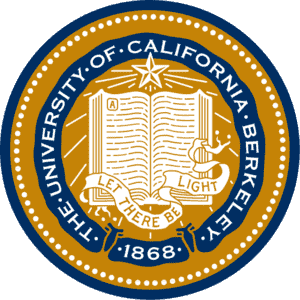
5. University of Toronto

6. Columbia University
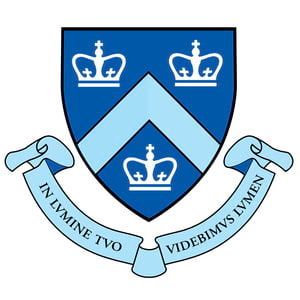
7. University of Pennsylvania

8. University of Chicago

9. University of Oxford

10. University of Washington - Seattle

11. New York University


12. Cornell University

13. Yale University

14. University of California - Los Angeles
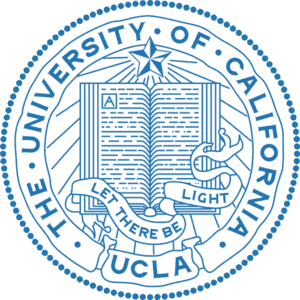
15. Massachusetts Institute of Technology

16. Johns Hopkins University

17. University College London

18. London School of Economics and Political Science

19. University of Wisconsin - Madison

20. University of Cambridge

21. University of Minnesota - Twin Cities
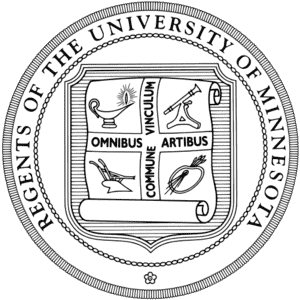
22. University of North Carolina at Chapel Hill

23. Pennsylvania State University

24. Ohio State University

25. University of British Columbia
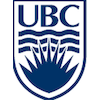
26. University of Illinois at Urbana - Champaign

27. Princeton University
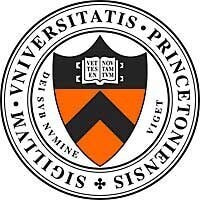
28. Duke University

29. University of Sydney

30. University of Melbourne

31. University of Texas at Austin

32. University of Southern California
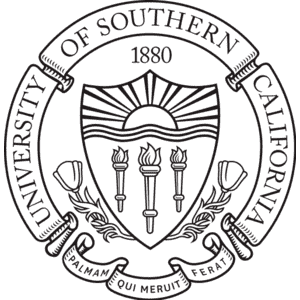
33. University of Manchester

34. Michigan State University

35. University of Maryland - College Park

36. University of Hong Kong

37. University of Amsterdam

38. Australian National University

39. University of California-San Diego

40. University of New South Wales

41. National University of Singapore

42. Monash University
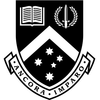
43. Arizona State University - Tempe
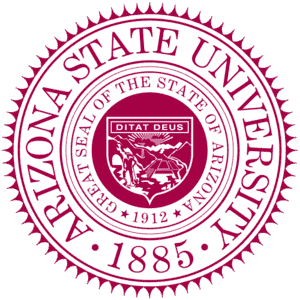
44. Northwestern University

45. University of Queensland

46. University of Florida
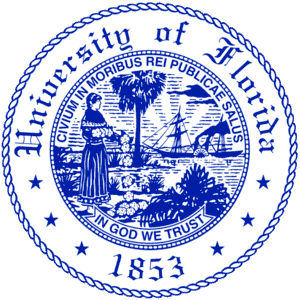
47. Boston University

48. Rutgers University - New Brunswick

49. Carnegie Mellon University

50. University of California - Davis
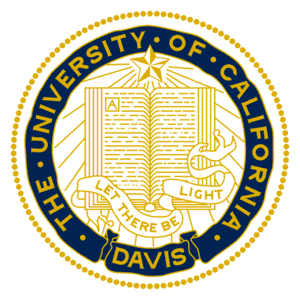
51. Catholic University of Leuven

52. University of Pittsburgh

53. Imperial College London

54. Erasmus University Rotterdam

55. King's College London

56. University of California - San Francisco
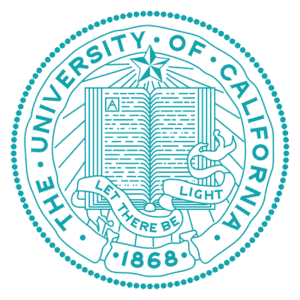
57. University of Warwick

58. University of Virginia

59. McGill University

60. University of Edinburgh

61. University of Nottingham

62. Texas A&M University - College Station

63. University of Arizona

64. University of Alberta

65. University of Sheffield

66. McMaster University
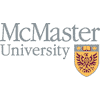
67. University of Copenhagen

68. University of Bristol

69. Washington University in St Louis

70. University of Rochester

71. University of Leeds

72. University of Birmingham

73. Tsinghua University

74. Emory University

75. Iowa State University

76. University of Illinois at Chicago

77. George Washington University

78. Vanderbilt University

79. University of Tokyo

80. University of Southampton

81. University of Iowa

82. University of California - Irvine

83. Utrecht University

84. Swiss Federal Institute of Technology Zurich

85. Georgetown University

86. Tel Aviv University

87. University of Sussex

88. University of Groningen

89. Chinese University of Hong Kong

90. Georgia Institute of Technology
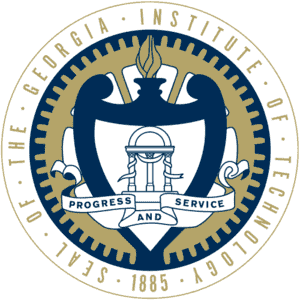
91. Peking University
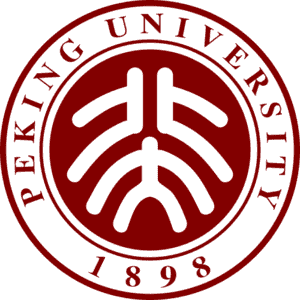
92. Tilburg University

93. Hong Kong Polytechnic University

94. University of Calgary

95. Western University
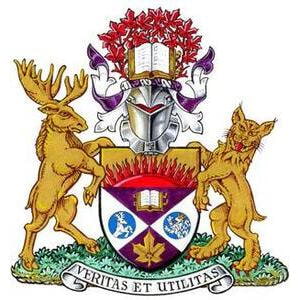
96. University of York

97. University of Auckland

98. Lund University
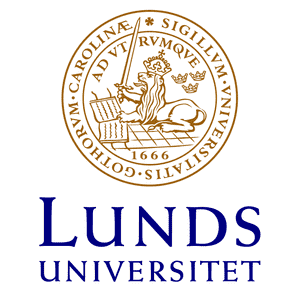
99. University of California - Santa Barbara
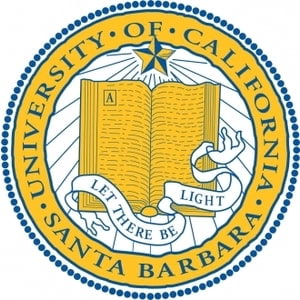
100. University of Utah

Economics subfields in the World
- Find Schools
- Twitter Facebook Pinterest
- Find Programs
- Highest Paid
- Popular Online
- Non-Traditional
2025 Best Econometrics & Quantitative Economics Doctor's Degree Schools
In 2025, College Factual analyzed 42 schools in order to identify the top ones for its Best Econometrics & Quantitative Economics Doctor's Degree Schools ranking. When you put them all together, these colleges and universities awarded 1,203 doctor's degrees in econometrics & quantitative economics during the <nil> academic year.
Jump to one of the following sections: * Our Methodology
- Best Doctor’s Degree Schools List
Choosing a Great Econometrics & Quantitative Economics School for Your Doctor's Degree

Quality Overall Is Important
The overall quality of a doctor's degree school is important to ensure a quality education, not just how well they do in a particular major. To make it into this list a school must rank well in our overall Best Colleges for a Doctor's Degree ranking. This ranking considered factors such as graduation rates, overall graduate earnings and other educational resources to identify great colleges and universities.
Other Factors We Consider
In addition to the above, you should consider some of the following factors:
- Major Focus - How much a school focuses on econometrics & quantitative economics students vs. other majors.
- Major Demand - The number of econometrics & quantitative economics students who choose to seek a doctor's degree at the school.
- Educational Resources - The amount of money and other resources allocated to students while they are pursuing their degree. These resources include such things as number of students per instructor and education expenditures per student.
- Accreditation - Whether a school is regionally accredited and/or accredited by a recognized econometrics & quantitative economics related body.
Our complete ranking methodology documents in more detail how we consider these factors to identify the best colleges for econometrics & quantitative economics students working on their doctor's degree.
More Ways to Rank Econometrics & Quantitative Economics Schools
The econometrics and quantitative economics school you choose to invest your time and money in matters. To help you make the decision that is right for you, we've developed a number of major-specific rankings , including this list of the Best Econometrics & Quantitative Economics Doctor's Degree Schools.
Best Schools for Doctorate Students to Study Econometrics & Quantitative Economics in the United States
Below you'll see a list of the best colleges and universities for pursuing a doctor's degree in econometrics & quantitative economics.
10 Top Schools for a Doctorate in Econometrics and Quantitative Economics

Northwestern University is a good option for students pursuing a doctor's degree in econometrics & quantitative economics. Northwestern is a very large private not-for-profit university located in the city of Evanston. More information about a doctorate in econometrics & quantitative economics from Northwestern University

University of Pennsylvania is a wonderful decision for students pursuing a doctor's degree in econometrics & quantitative economics. Located in the large city of Philadelphia, UPenn is a private not-for-profit university with a very large student population. More information about a doctorate in econometrics & quantitative economics from University of Pennsylvania

It is hard to beat Columbia University in the City of New York if you wish to pursue a doctor's degree in econometrics & quantitative economics. Located in the city of New York, Columbia is a private not-for-profit university with a very large student population. More information about a doctorate in econometrics & quantitative economics from Columbia University in the City of New York

University of Chicago is a great option for students interested in a doctor's degree in econometrics & quantitative economics. Located in the large city of Chicago, UChicago is a private not-for-profit university with a fairly large student population. More information about a doctorate in econometrics & quantitative economics from University of Chicago

Cornell is a fairly large private not-for-profit university located in the city of Ithaca. More information about a doctorate in econometrics & quantitative economics from Cornell University

Harvard is a fairly large private not-for-profit university located in the medium-sized city of Cambridge. More information about a doctorate in econometrics & quantitative economics from Harvard University

Stanford is a fairly large private not-for-profit university located in the suburb of Stanford. More information about a doctorate in econometrics & quantitative economics from Stanford University

Located in the city of Durham, Duke is a private not-for-profit university with a large student population. More information about a doctorate in econometrics & quantitative economics from Duke University

UC Berkeley is a very large public university located in the midsize city of Berkeley. More information about a doctorate in econometrics & quantitative economics from University of California - Berkeley

Located in the midsize city of Providence, Brown is a private not-for-profit university with a fairly large student population. More information about a doctorate in econometrics & quantitative economics from Brown University
Econometrics & Quantitative Economics by Region
View the Best Econometrics & Quantitative Economics Doctor's Degree Schools for a specific region near you.
Other Rankings
Best bachelor's degrees in econometrics & quantitative economics, best overall in econometrics & quantitative economics, best master's degrees in econometrics & quantitative economics.
View All Rankings >
Econometrics & Quantitative Economics Related Rankings by Major
One of 5 majors within the Economics area of study, Econometrics & Quantitative Economics has other similar majors worth exploring.
Majors Similar to Econometrics and Quantitative Economics
Notes and references.
- The bars on the spread charts above show the distribution of the schools on this list +/- one standard deviation from the mean.
- The Integrated Postsecondary Education Data System ( IPEDS ) from the National Center for Education Statistics (NCES), a branch of the U.S. Department of Education (DOE) serves as the core of the rest of our data about colleges.
- Some other college data, including much of the graduate earnings data, comes from the U.S. Department of Education’s ( College Scorecard ).
- Credit for the banner image above goes to pixabay . More about our data sources and methodologies .
Popular Reports
Compare your school options.

IMAGES
COMMENTS
These are the top graduate schools for economics programs. Each school's score reflects its average rating on a scale from 1 (marginal) to 5 (outstanding), based on a survey of academics at...
In 2025, College Factual analyzed 49 schools in order to identify the top ones for its Best Economics Doctor's Degree Schools ranking. When you put them all together, these colleges and universities awarded 1,385 doctor's degrees in economics during the <nil> academic year.
Program rankings. The following organizations rank graduate economics programs using various approaches: US News and World Report 2023 Best Economics Schools; US News and World Report Ranking of the Best Global Universities for Economics and Business; RePEc Ranking of Institutions; National Academies of Sciences, Engineering, and Medicine 2011 ...
Discover which universities around the world are the best for economics & econometrics with the QS World University Rankings by Subject 2024.
Sep 20, 2024 · A PhD in Economics takes five to six years* to earn. Students spend two years completing their coursework, and conduct research and dissertation in the remaining years. The federal government (27%) is the largest employer** of economists. About 20% of them are hired by management, scientific, and technical consulting services.
For Economics Departments, these are 2660 institutions ; Please note that rankings can depend on the number of registered authors in the respective institutions. Register at the RePEc Author Service to be counted. There are 9003 institutions with 70077 registered authors evaluated for all the rankings.
Jul 10, 2024 · According to various global rankings, the top economics schools and programs worldwide are: Harvard University - Ranked #1 in economics globally, Harvard offers a prestigious PhD program with exceptional research opportunities and access to world-renowned faculty.
Feb 29, 2024 · Below is a list of best universities in the World ranked based on their research performance in Economics. A graph of 196M citations received by 10.3M academic papers made by 5,995 universities in the World was used to calculate publications' ratings, which then were adjusted for release dates and added to final scores.
Find best universities/colleges offering Doctorate programs Economics along with their rankings, tuition fees, admission process, entry requirements and scholarships offered.
Find Top Schools for a Doctorate in Econometrics and Quantitative Economics near you: A ranking of the 42 best econometrics & quantitative economics colleges for those seeking their doctor's degree.